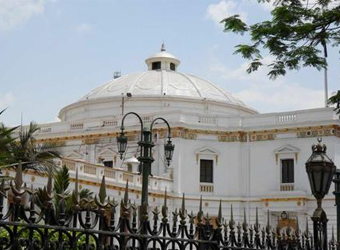Egypt’s parliament has voted to increase the minimum income tax threshold to 7,200 Egyptian pounds ($400) a year from 6,500 pounds and gave tax breaks to the first three brackets.
Self-employed people or those working in trade or industry making 7,200 pounds a year or less would not be taxed on income. Public and private sector employees making up to 14,200 pounds would be exempt, up from 13,500 previously.
Those in the income tax bracket making between 7,200 – 30,000 pounds a year and who would normally pay a 10 percent income tax will get an 80 percent tax break, meaning they pay 20 percent of taxes they would normally pay.
The 30-45,000 pound bracket, which is taxed at 15 percent, will get a 40 percent tax break. The 45-200,000 pound a year bracket, taxed at 20 percent, will get a 5 percent tax break.
Egyptians making more than 200,000 pounds a year who get taxed at 22.5 percent will pay their full income tax.
The measures must be ratified by President Abdel Fattah al-Sisi, a formality, before they take effect. Around 15 million families will benefit from the measures, which the government hopes will alleviate some of the effects of recent austerity.
Egypt’s economy has been struggling since a 2011 uprising drove foreign investors and tourists away, but the government hopes a $12 billion International Monetary Fund lending program signed last year will put it on the road to recovery.
The central bank floated the pound currency last November, as part of economic reforms agreed with the IMF which also included fuel subsidy cuts. The pound’s value has halved since then and inflation is at record highs.
The government approved a social security package worth 43 billion pounds for the 2017-18 fiscal year beginning in July, including a 15 percent rise for pensioners and a 14-20 percent rise in salaries, Finance Minister Amr el-Garhy said last month.
Source: Reuters


